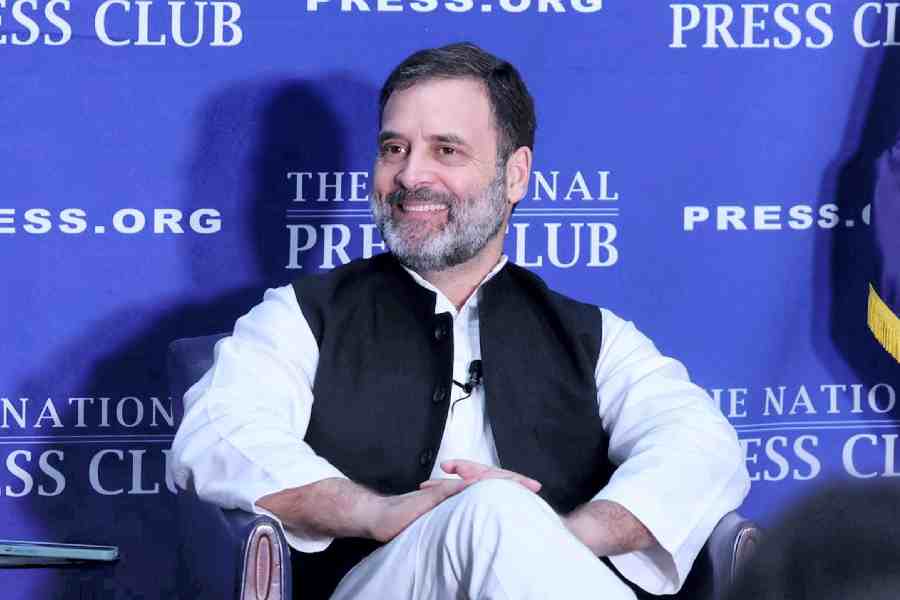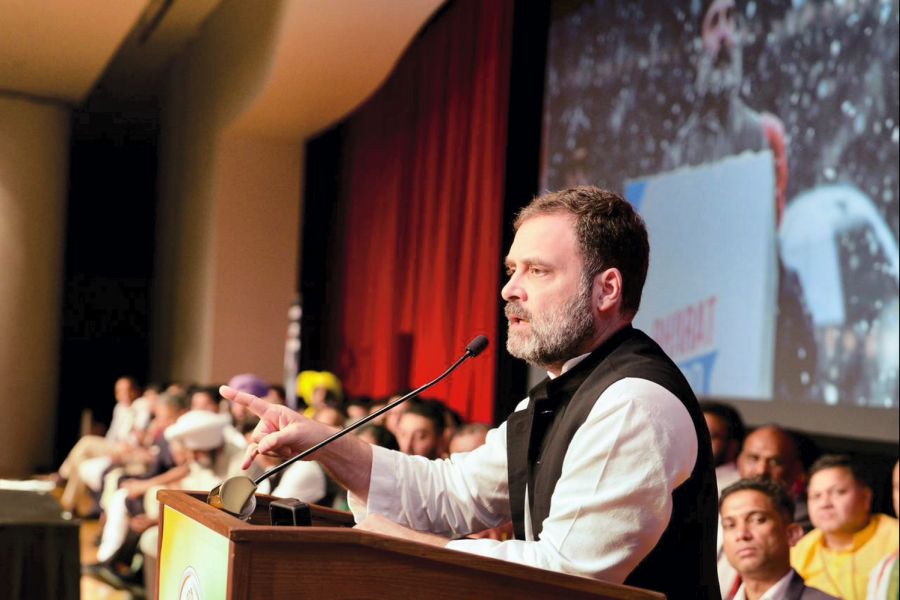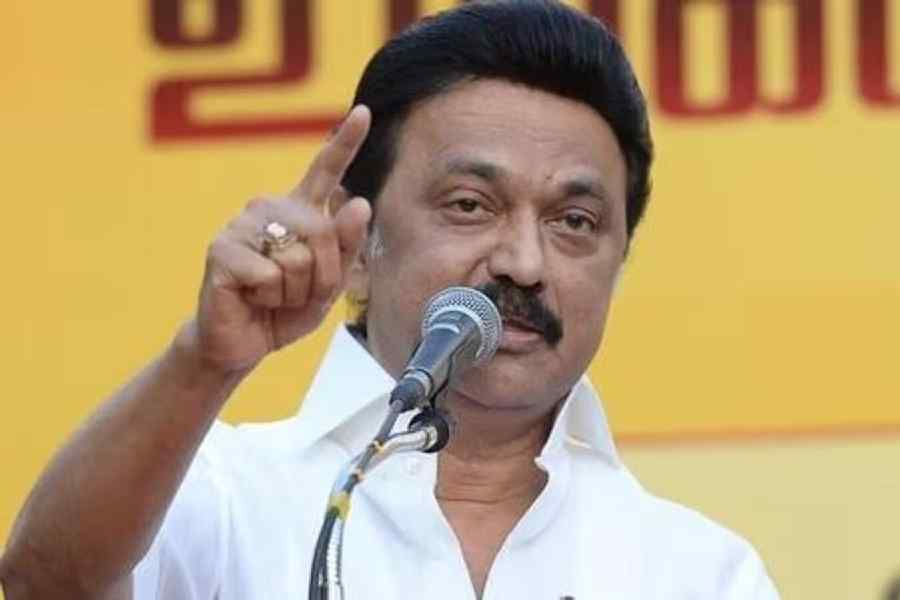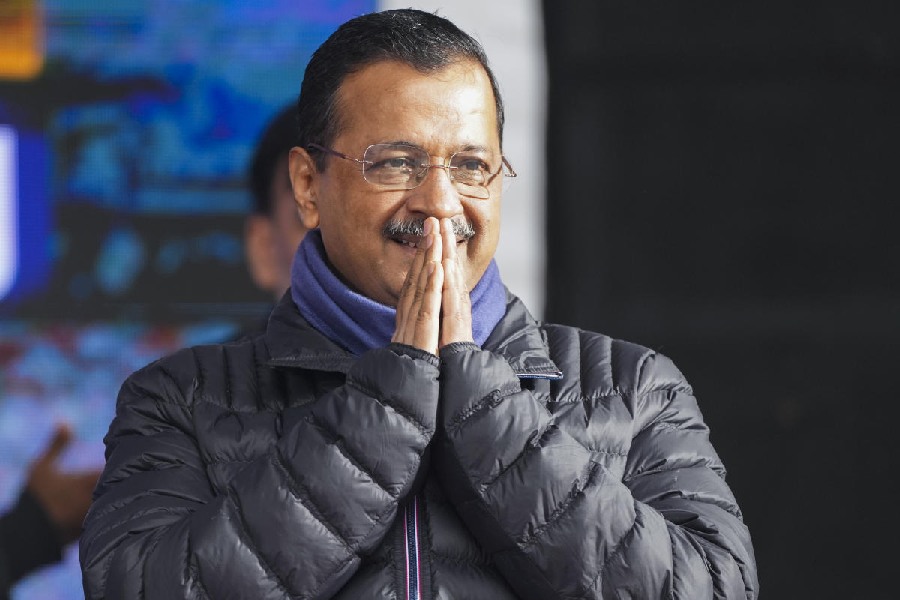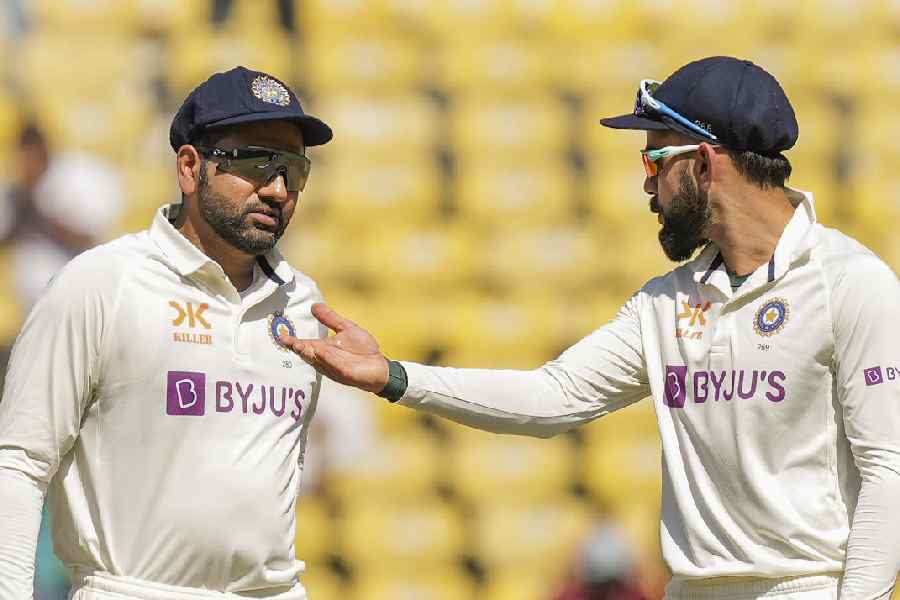Rahul Gandhi on Sunday reminded Indians living abroad that they had succeeded because they hadn't quarrelled with the religion or language of the country they had settled in, underlining the importance of cultural assimilation for harmonious coexistence.
Addressing the Indian diaspora in New York, Rahul argued that bigotry and a predilection for confrontation were not Indian cultural traits, implying that the RSS philosophy was incompatible with the lived experience of expatriate Indians who had embraced the cultures of the nations they had emigrated to.
“An Indian girl from Stanford University met me and said she wanted to return but she was afraid. She said, ‘I don’t like the atmosphere back home; the hatred, anger and violence’,” the Congress leader said.
“That’s the India we want? No, we want an India where this girl says, ‘I want to go back because there is love, peace and harmony in India’.”
Rahul seemed to be trying to mount moral pressure on the Indian diaspora, perceived as passionately pro-Modi, by reminding it that its values represent the liberal Indian tradition and are at odds with the hatred and violence that now marks Indian society.
“There is a new fashion that has come up: To express Indian-ness, you have to be hateful, to express Indian-ness, you have to be abusive, to express Indian-ness, you have to beat people. No, that’s not Indian-ness. We refuse to accept that as Indian,” he said.
“You earned respect across the world because of your behaviour. When you see a person from another culture, you don’t ask ‘What is your religion?’ — you help him. To be nasty to others is not being Indian."
Rahul said that the Indian values of searching for truth, peace and humility had evolved through the teachings of great men like the Buddha, Guru Nanak, Basavanna, Narayana Guru and Mahatma Gandhi.
“Aap Hindustan se ahankar nahin laaye (You didn’t bring arrogance from India). You accepted American culture, language, history and diversity. You didn’t quarrel with them,” he said.
“You are the true ambassadors of India. You represent a particular view of our country, not the view propagated by the RSS-BJP.”
Rahul tried to explain the distinction using the Gandhi-Godse binary.
“This is the simplest, most precise way I can say it: Gandhi was a brave man, the most impactful NRI (an allusion to Gandhi’s days in South Africa), a simple and humble man who believed in non-violence and was in search of truth. We follow his ideology,” he said.
“On the other side is (Gandhi’s assassin Nathuram) Godse — angry, violent and unable to face his own reality. He chose to shoot the man who represented the essence of India. Godse always spoke of the past, never of the future. He was scared. He was a coward, unable to deal with his own life.”
Amid loud cheers, he added: “Back home, we have a (similar) problem. The RSS-BJP are incapable of looking at the future. They always look back. They blame the Congress for everything.
“You all came here driving your car. What will happen if you keep looking in the rear-view mirror? One accident after another. That’s the Modi phenomenon. He is driving the India car looking in the rear-view mirror and he doesn’t understand why the car is crashing.
“Listen to RSS-BJP leaders and ministers. They never talk about the future. They talk about the past and blame somebody else for what’s happening. The Congress never said the train crashed because of the fault of the British. Our minister resigned, taking responsibility for the train crash.”
Late Congress leader Lal Bahadur Shastri had resigned as railway minister in 1956 after a train accident killed 140-odd people.
“They (the BJP) only make excuses and never accept the reality. There is unemployment. If we want to build an India where the vast majority of our youth are employed, we have to look at the bridge between the US and India,” Rahul said.
“We should focus on the nature of the partnership between the US and India — how do we face the challenge that the Chinese have put on the table? What is our view on the revolution in mobility, the revolution in data and connectivity, the transformation in the energy system? These are the things we should be discussing.”
Rahul alleged a full-scale attack on India’s democratic structure.
“All our institutions are under attack, including the judiciary and the media. It is our responsibility to defend the idea of India; the centrepiece of which is democracy. Modern India can’t exist without democracy and the Constitution,” he said.
“It gives me tremendous strength to see you — keeping India in heart — respect and love each other. The central architects of modern India were all NRIs: Gandhi, (Jawaharlal) Nehru, (Vallabhbhai) Patel, (Bhimrao) Ambedkar — people with an open mind.”

